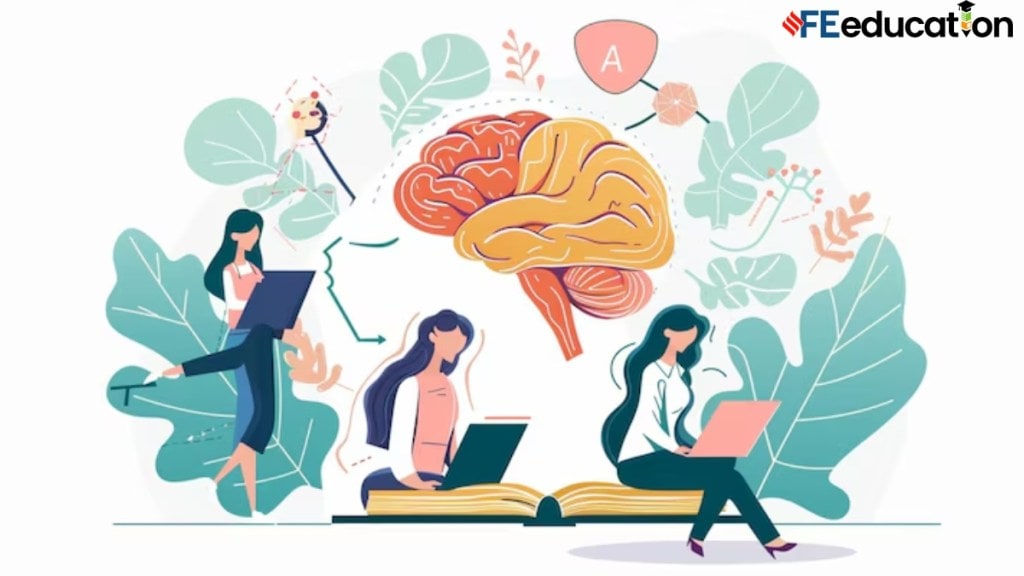By Daniel Fung and Chandrakant Singh
The mental well-being of children and adolescents has become a central focus of educational policy worldwide, especially given the concerning data surrounding youth mental health. In our increasingly complex world, teachers are not only educators but also frontline observers of mental, behavioural, and psychological problems among children. Their role in identifying and addressing these issues is critical, yet many lack the necessary training in mental health awareness and intervention.
The Startling Statistics
The World Health Organization (WHO) reports that 1 in 7, or roughly 14% of 10-19-year-olds, experiences a mental disorder, accounting for 13% of the global burden of illness in this age group. Moreover, mental illnesses are a leading cause of disability worldwide, presenting significant challenges on a global scale. The severity of this issue is amplified in India, where there is an acute shortage of mental health professionals, with only 0.75 psychiatrists per 100,000 people. This underlines a profound care gap in a country where nearly 15% of the population suffers from mental health issues, predominantly depression, anxiety disorders, bipolar disorder, schizophrenia, and substance abuse disorders.
The economic impact is equally staggering, with mental health conditions expected to cost the global economy approximately $1.03 trillion between 2012 and 2030. Furthermore, with suicide ranked as the fourth leading cause of death among the young, the urgency of addressing mental health at early stages cannot be overstated.
National Education Policy and Mental Health
Recognizing the urgency, India’s National Education Policy (NEP) 2020 emphasizes the mental health and emotional well-being of students. It advocates for robust measures to establish secure and inclusive school environments. This policy framework provides a foundational step toward integrating mental health education into the fabric of teacher training and curriculum development.
“Prioritising mental health education for teachers isn’t just essential; it’s the cornerstone of early intervention. Empowering educators with the tools to understand, recognize, and support mental well-being lays the foundation for a resilient generation. LearnX pioneers transformative education by nurturing holistic growth and mental well-being revolutionizing education, empowering educators to bridge the gap between academic excellence and mental wellness, thus shaping resilient and thriving communities,” Chandrakant Singh, Managing Director, LearnX, added.
LearnX, established in 2020, emerged as a visionary response to the evolving educational landscape. LearnX began its journey to transform education by focusing on holistic growth and mental well-being of adolescents. Collaborating with esteemed institutions like Atal Innovation Mission (AIM) NITI Aayog, and Institute of Mental Health Singapore, LearnX embarked on a mission to empower educators, bridging the gap between academic excellence and mental wellness.
In collaboration with Atal Innovation Mission (AIM) Niti Aayog, LearnX launched an International Certificate Program for educators focusing on ‘Transformative Teaching for Inclusive Development’ in 2022. The Pilot program aimed to upskill teachers on ‘Transformative Teaching for Inclusive Development. Over a period of two years, approximately 15000 teachers from 10,000 schools across India thereby touching the lives of 500,000 children. Recently, LearnX partnered with 203 Delhi Public School (DPS) chain schools. Through this partnership, LearnX is set to provide comprehensive and structured training in mental health and wellbeing to approximately 15225 teaching and non- teaching staff at DPS chain schools, thereby impacting an estimated half a million students over an academic year.
The partnership with DPS chain of schools marks the next phase for LearnX and further strengthens its ongoing efforts to address youth mental health and provide crucial support to teachers, parents and students alike throughout India.
“Mental health education plays a crucial role in nurturing the overall well-being of individuals, particularly among younger generations, and it is our responsibility to provide them with the support they need to thrive,” Daniel Fung, CEO, Institute of Mental Health, said.
The Importance of Early Identification
Teachers trained in mental health are better equipped to recognize early signs of distress in children. Early identification leads to timely intervention, which is crucial in preventing the development of more severe mental health issues. Educators can provide first-line support and direct students and their families to professional help when necessary. Such training also aids in creating a stigma-free environment where mental health can be openly discussed, promoting a culture of understanding and support.
Conclusion
The statistics and real-life implications of mental health issues among children necessitate a comprehensive approach to teacher education in mental health. By integrating mental health into the training curriculum for teachers, not only can we better support our children, but we can also make strides toward a more empathetic and aware society. Initiatives like those led by LearnX are pioneering steps toward realizing this vision, embodying the change needed to safeguard the mental wellness of future generations.
The author, Daniel Fung is CEO of Institute of Mental Health and Chandrakant Singh is Managing Director at LearnX. Views are personal.

